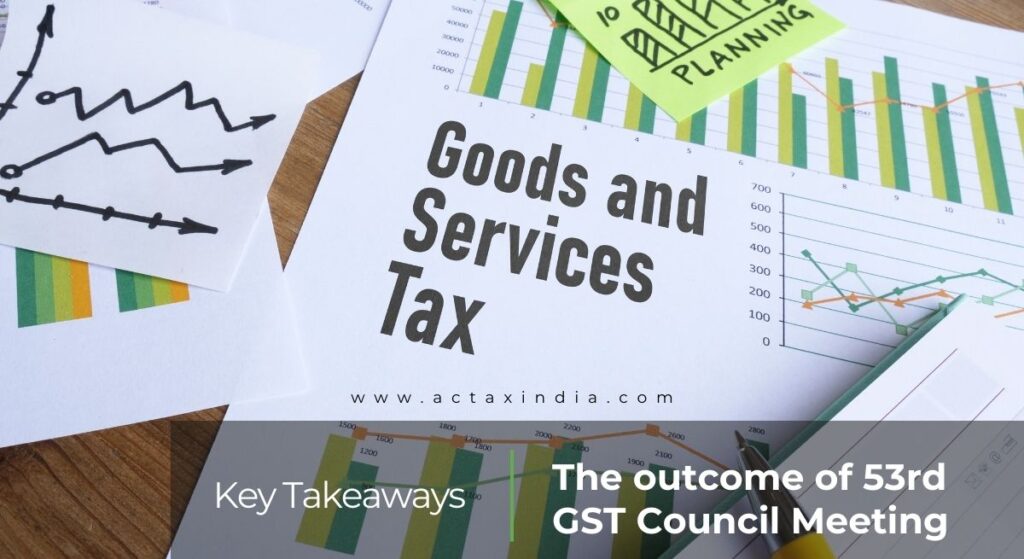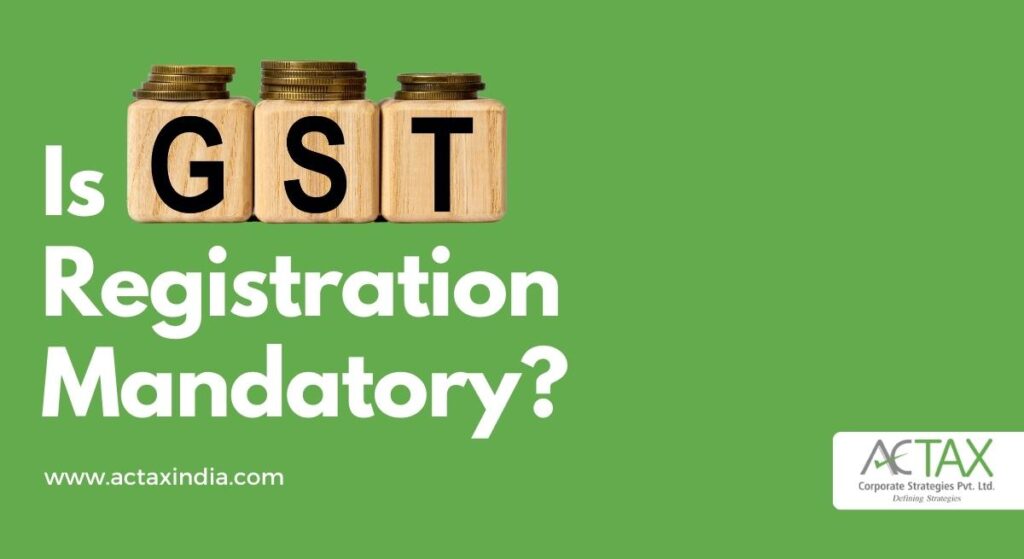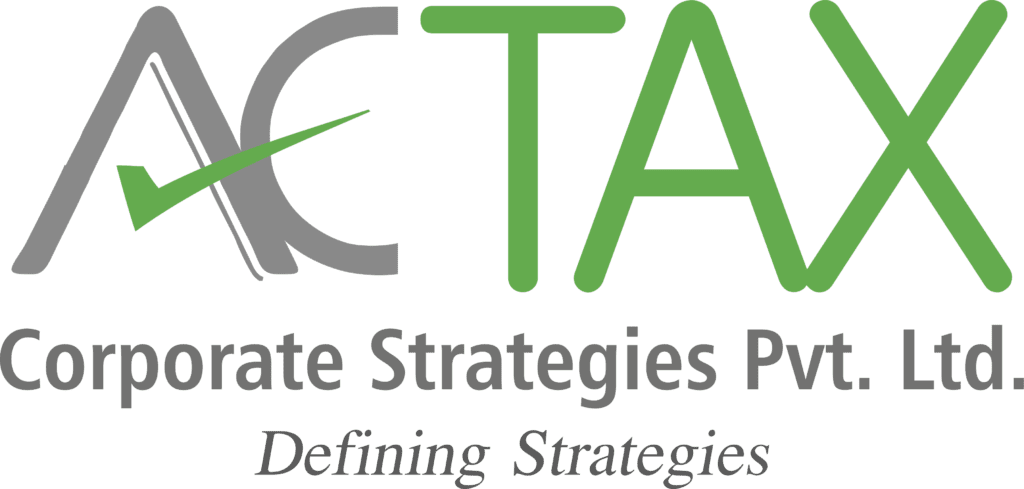The 53rd GST Council meeting, chaired by Finance Minister Nirmala Sitharaman, brought forth several significant recommendations impacting GST tax rates, trade facilitation, and compliance measures. These changes aim to simplify GSTregistration processes, reduce litigation, and ease the burden on taxpayers.
Key implications & Decisions taken in 53rd GST Council Meeting
Changes in GST Tax Rates
- Reduced GST on Essential Goods: The GST rate on essential items like milk cans (steel, iron, and aluminum), cartons, boxes, and cases made of paper or paperboard, and solar cookers has been reduced to 12%, making these goods more affordable for consumers.
- Boost to MRO Activities: A uniform 5% IGST rate on imports of aircraft parts and components aims to promote Maintenance, Repair, and Overhaul (MRO) activities in the aviation sector.
- Exemptions for Indian Railways: Services provided by Indian Railways to the general public, such as platform tickets, retiring rooms, cloak rooms, and battery-operated car services, have been exempted from GST. Intra-Railway transactions are also exempt.
- Relief for Students and Professionals: Accommodation services up to Rs. 20,000 per month per person are exempt from GST, benefitis business or students and working professionals.
Trade Facilitation Measures
- Waiver of Interest and Penalties: The council recommended waiving interest and penalties for demand notices issued under Section 73 of the CGST Act for fiscal years 2017-18 to 2019-20, provided the full tax demanded is paid by March 31, 2025. This move offers relief to taxpayers facing difficulties during the initial years of GST implementation.
- Reduced Litigation: Monetary limits for filing appeals by the department have been set to reduce government litigation. The limits are Rs. 20 lakhs for the GST Appellate Tribunal, Rs. 1 crore for the High Court, and Rs. 2 crores for the Supreme Court.
- Lower Pre-Deposit for Appeals: The amount of pre-deposit required for filing appeals under GST has been reduced, easing cash flow constraints for taxpayers. also Gst Mandatory registration process
Compliance Measures
- Relaxation in Input Tax Credit (ITC) Claims: The time limit for availing ITC for invoices or debit notes through GSTR 3B returns filed up to November 30, 2021, for financial years 2017-18 to 2020-21 has been extended.
- Extension of Due Date for GSTR-4: The due date for filing GSTR-4 for composition taxpayers has been extended from April 30 to June 30, providing them more time to furnish returns.
- Interest Calculation on Delayed Returns: Interest on delayed filing of returns will not be levied on the amount available in the Electronic Cash Ledger (ECL) on the due date.
- Biometric-Based Aadhaar Authentication: The rollout of biometric-based Aadhaar authentication for registration applicants aims to curb fraudulent ITC claims.
Other Notable Decisions
- Taxation of Extra Neutral Alcohol (ENA): GST will not be levied on ENA used for manufacturing alcoholic liquor for human consumption.
- Reduced TCS Rate for ECOs: The Tax Collected at Source (TCS) rate for Electronic Commerce Operators (ECOs) has been reduced from 1% to 0.5%.
- Sunset Clause for Anti-Profiteering: A sunset clause for anti-profiteering under GST has been introduced, with April 1, 2025, as the deadline for new applications.
Conclusion
The 53rd GST Council meeting introduced several measures to simplify GST procedures, reduce litigation, and provide relief to taxpayers. These changes are expected to have a positive impact on businesses and individuals, making GST compliance easier and more efficient. Actax India Experts can help you get GST registration for your business with proper consultation.







Comments are closed.